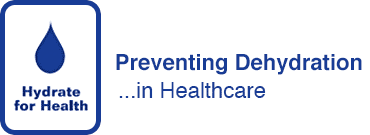Child Dehydration: What are the health effects
Did you know that ignoring child dehydration can lead to a reduction in both his mental and physical performance, as well as more serious conditions?
What are the health effects of child dehydration
According to the United States National Institute of Health, Children need more water than adults because of their high energy output, and it is imperative to understand these warnings:
- Mild dehydration of only 2% can cause a 20% reduction of a child’s mental and physical performance.
- A more excessive loss of water, like 3 %, can lead to more severe conditions like heat stroke, low blood pressure, rapid heartbeat and/or rapid breathing or even fever.
Dehydration can also affect your child’s brain
The brain is made up of about 80% water, an essential element in neurological transmissions. Evidence shows that cognitive performance decreases by 10% in healthy youngsters when they are thirsty. The key to increasing the brain’s ability to learn and retain information, is drinking water in small quantities throughout the day.
Headaches, irritability and sleepiness are often signs of child dehydration, as well.
The telltale signs of child dehydration
If your child has been ill with symptoms such as fever or diarrhea, is vomiting, or participates in intense physical activity, such as high energy sports that require long periods of running, soccer as an example, it is vital to watch for the danger signs of dehydration, which can include:
- dry or sticky mouth
- dry, cool skin
- fatigue, lethargy and irritability
- dry , itchy eyes
- low or no urine for several hours, or small amount of dark yellow urine
How to Avoid Child Dehydration
1. Soft Drinks should be replaced with simple water
Different surveys show that at school children drink less water than they should and this, often in the flavor of colored, sweet drinks.
As a parent, it is your responsibility to educate and discourage your children from becoming addicted to artificially colored, flavored and sweetened drinks.
Instead, kids can be provided with an easy to refill, nicely colored and funny child water bottle. – They can get attracted to this by encouraging them to choose their own colors and designs together and giving them the model of watching their parents doing the same.
This way they will be proud of what they are doing and be more likely to drink water instead of other unhealthy beverages.
2. A child should be shown how to check urine
– Large amounts of pale urine indicates good hydration, while small amounts of dark urine indicates a degree of dehydration. Teach your child to advise you if they notice this danger sign.
3. More fruits and vegetables should be added to children food
– Fruits and vegetables add to the daily intake of necessary fluids!
